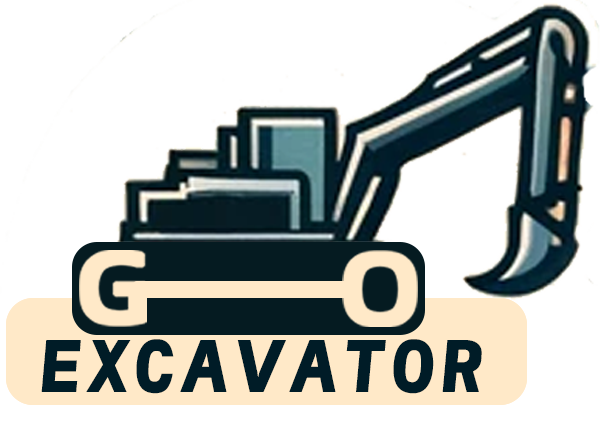
Excavators are indispensable pieces of machinery in the construction and mining industries. They come in various sizes, each designed to tackle specific tasks. In this blog, we will delve into the advantages of both large and small excavators, providing a comprehensive understanding of their unique benefits.
Introduction to Excavators
Excavators are versatile machines used for digging, lifting, and moving materials. They are equipped with a bucket, arm, rotating cab, and movable tracks. These features provide superior digging power and mobility, allowing this heavy equipment to perform a variety of functions. There are two main categories of excavators: large excavators and small excavators. Each type offers distinct advantages depending on the job requirements.
Advantages of Large Excavators
Large excavators are typically used for extensive construction projects and mining operations. Here are some of their key benefits:
High Efficiency and Productivity
Large excavators are designed for maximum productivity. They can handle substantial loads and operate for long hours without overheating or breaking down. This efficiency is crucial for large-scale projects where time and workload are critical factors.
Powerful Performance
These machines come with powerful engines and hydraulic systems that provide excellent digging and lifting capabilities. They can easily handle tough materials like rock and concrete, making them ideal for demanding environments.
Enhanced Stability
Due to their size and weight, large excavators offer superior stability. This stability is essential when working on uneven or challenging terrains, ensuring safety and precision during operation.
Greater Reach and Depth
Large excavators have longer arms and larger buckets, allowing them to reach greater depths and distances. This feature is particularly beneficial for projects that require deep digging or extensive material handling.

Advantages of Small Excavators
Small excavators, known as mini excavators, are compact and versatile. They are commonly used for smaller construction projects, landscaping, and utility work. Here are their main advantages:
Maneuverability
Small excavators are highly maneuverable, making them ideal for working in confined spaces or areas with limited access. Their compact size allows them to navigate through tight spots where larger machines cannot go.
Lower Operating Costs
These machines are generally more fuel-efficient and require less maintenance than their larger counterparts. This efficiency translates to lower operating costs, making them a cost-effective choice for smaller projects.
Ease of Transport
Transporting small excavators is relatively easy compared to larger machines. They can be loaded onto trailers and moved between job sites with minimal effort and expense, providing flexibility for contractors working on multiple projects.
Versatility
Small excavators come with a variety of attachments, such as augers, breakers, and grapples, enhancing their versatility. This adaptability allows them to perform a wide range of tasks, from digging and trenching to demolition and material handling.

Choosing the Right Excavator
Selecting the right excavator depends on the specific needs of your project. Here are some factors to consider:
Project Size and Scope
For large-scale projects requiring significant excavation and material handling, a large excavator is the best choice. For smaller, more precise tasks, a small excavator is more suitable.
Site Conditions
Consider the terrain and accessibility of the job site. Large excavators are better suited for open, rugged environments, while small excavators excel in tight, urban settings.
Budget Constraints
Evaluate your budget for both initial purchase and ongoing operating costs. Small excavators generally offer lower upfront and operational expenses, making them a viable option for budget-conscious projects.
Both large and small excavators have their unique advantages, making them indispensable tools in the construction and mining industries. Large excavators provide power and efficiency for extensive projects, while small excavators offer versatility and cost-effectiveness for smaller tasks.
Frequently Asked Questions (FAQs)
1. What are the main differences between large and small excavators?
Large excavators are designed for high-efficiency, heavy-duty tasks with powerful performance and greater reach. Small excavators, on the other hand, are compact, maneuverable, and versatile, suitable for smaller projects and confined spaces.
2. How do I choose between a large and small excavator for my project?
Consider the project size, site conditions, and budget. Large excavators are ideal for extensive, demanding tasks, while small excavators are better for precise, smaller-scale work.
3. Are small excavators more cost-effective than large ones?
Generally, yes. Small excavators have lower fuel consumption and maintenance costs, making them a more cost-effective option for smaller projects.
4. Can small excavators handle tough materials like rock and concrete?
While small excavators are versatile, they may not be as effective as large excavators in handling very tough materials. However, with the right attachments, they can perform a variety of tasks, including breaking concrete and digging through rocky soil.
5. What attachments are available for small excavators?
Small excavators can be equipped with various attachments, such as augers, breakers, grapples, and trenching buckets, enhancing their versatility for different tasks.
A Comprehensive Guide to Buying a Excavator Second Hand
Purchasing a second-hand excavator can be a cost-effective solution for your construction or landscaping needs. However, buying used machinery comes with its own set of challenges and considerations. This comprehensive guide will walk you through [...]
Comprehensive Guide to Hyundai Mini Excavators: Features and Prices
Mini excavators have become indispensable tools in the construction and landscaping industries. Hyundai Construction Equipment, a global leader in heavy machinery, offers a range of mini excavators known for their reliability, efficiency, and advanced features. [...]
How to Extend the Service Life of Excavator Parts
Excavators are indispensable machines in the construction and mining industries. They perform heavy-duty tasks that demand robust components and meticulous maintenance. Extending the service life of excavator parts not only reduces operational costs but enhances [...]
Kymron Excavators: Innovative, Sustainable Construction Machinery
In the dynamic world of construction and heavy machinery, Kymron has emerged as a game-changer. Specializing in advanced excavator technology, Kymron is redefining industry standards with its commitment to innovation, efficiency, and sustainability. Company Overview [...]
Bulldozer vs. Wheeled Excavator: Which Machine is Better for Moving Soil?
Moving soil is a fundamental task in construction, landscaping, and earthmoving projects. Choosing the right machinery for the job can significantly impact efficiency, cost, and project timelines. Two of the most commonly used machines for [...]
Why Are Small Excavators Favored? A Comprehensive Guide
In the world of construction and landscaping, efficiency and versatility are key. Among the myriad of machinery available, small excavators have risen in popularity. But what makes them so favored? Introduction to Small Excavators Small [...]




